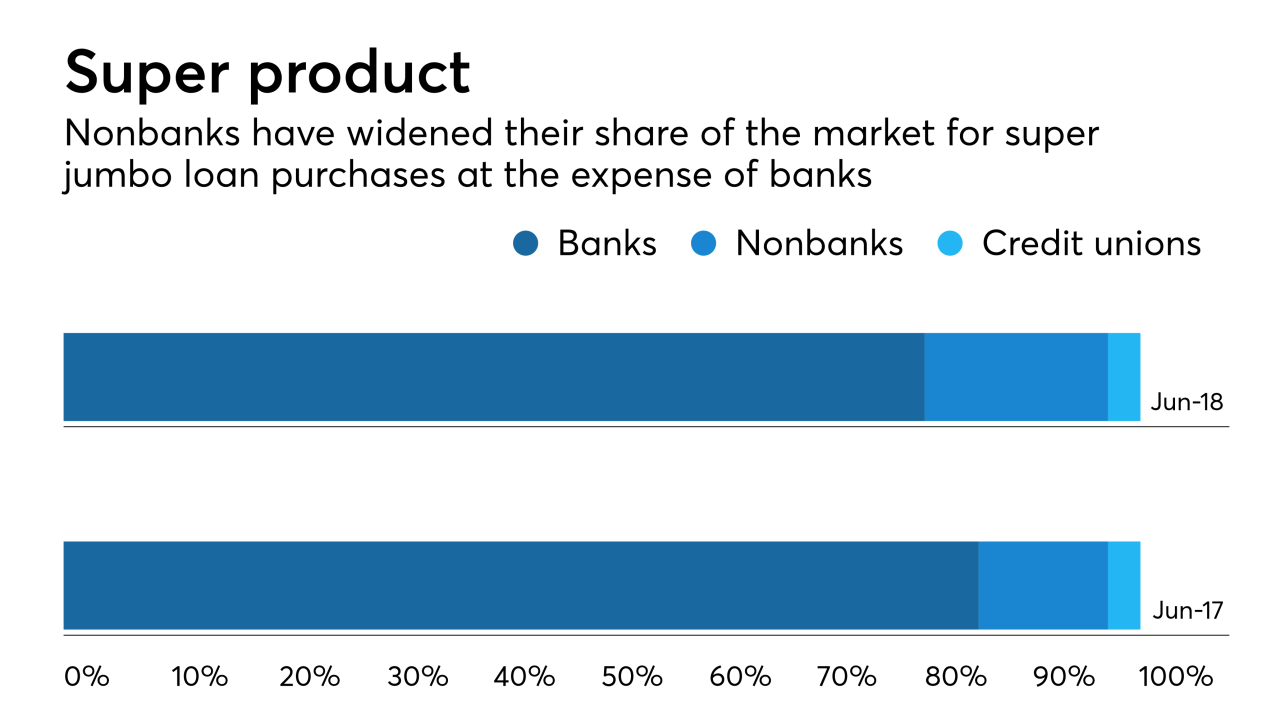-
Moody’s expects losses on Drive Auto Receivables Trust 2018-4 to reach 25% of the original balance over the life of the deal, down from 26% for its prior deal.
September 7 -
Investor appetite for deeply subordinated debt is increasing even as the industry starts to consolidate; problems at Honor Finance demonstrate the limits of relying on overcollateralization to offset losses.
September 6 -
About 8.5% of loans backing the $256.2 million transaction were reassigned from a 2015 deal; this boosted the weighted average seasoning to seven months from one month for ACA's prior deal.
September 5 -
S&P says extended term loans and "liberal" collection policies are pushing losses and amortization toward the tail end of some lenders' securitizations — making cross-comparing performance between lenders and an issuer's own outstanding vintage deals more difficult.
August 26 -
New investor appetite for mortgages over $1 million is motivating more nonbank lenders to offer super jumbo loans, often with weaker credit terms than traditional banks.
August 20 -
Similar to the sponsor's prior transaction, however, the collateral includes a large portion of loans underwritten using bank statements to verify borrower income: 49%.
August 17 -
The investors initially won the right to sue as a group in 2015 before an appeals court reversed the ruling; the $13 billion lawsuit can now proceed as a class action.
August 15 -
Westlake increased the size of all eight classes of notes by at least 37% as investor demand surges for subprime ABS paper
August 13 -
Westlake's $800 million offering features increased exposure to loans sourced through a relationship with Ally Bank; CAC's $398 million deal is notable for having less seasoned collateral.
August 9 -
The online small-business lender was aided by loan growth, wider margins and stable credit trends. Its shares surged by 25% after second-quarter earnings were announced.
August 7









